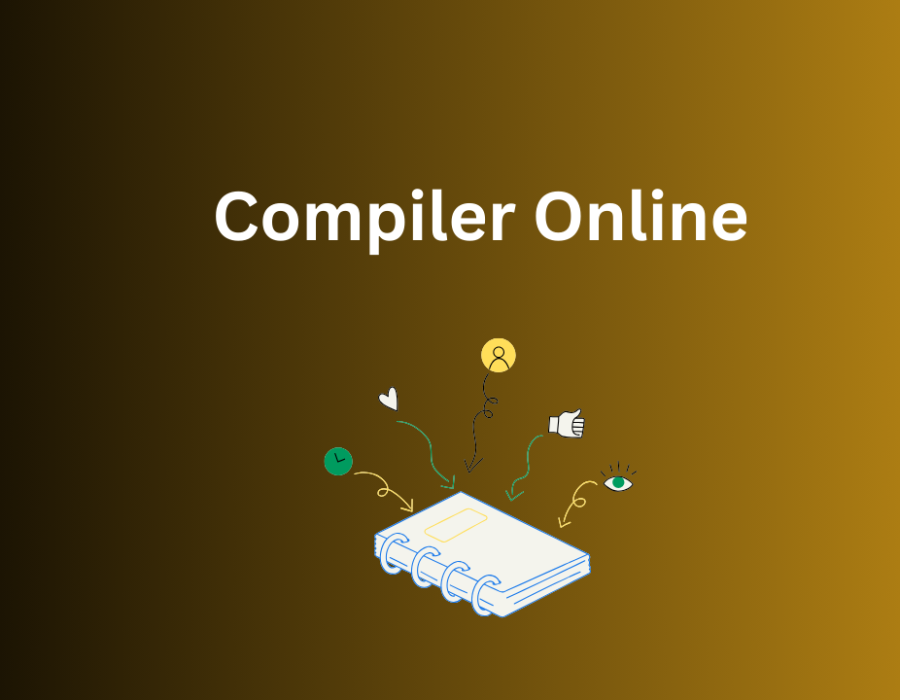Ever dreamt of writing code on the go, without the hassle of bulky software installations? Well, online compilers turn that dream into reality! But what exactly are they, and how can they benefit you as a programmer? Buckle up, coders, because we're diving deep into the world of online compilers and exploring their immense potential.
Demystifying the Online Compiler
Imagine a bridge between your code and a functioning program, accessible from any web browser. That's essentially what an online compiler does. It takes your human-readable code (written in a specific programming language) and translates it into machine code - the language computers understand.
Here's a simplified breakdown of the process:
- Write Your Code: Open the online compiler's interface and type your code directly in the editor window or upload an existing code file.
- Choose Your Language: Most online compilers support a wide range of popular languages like C++, Java, Python, JavaScript, etc. Select the language you're using.
- Compile and Run: Click the "Compile" or "Run" button. The compiler analyzes your code, detects errors (if any), and converts it into machine code. If successful, the output of your program displays in the designated window.
The entire process is streamlined and efficient, allowing you to test and debug your code in real-time, without the need for local installations.
Why Use an Online Compiler?
Online compilers offer a plethora of advantages for programmers of all levels:
- Accessibility: The biggest perk? No installations! Use any device with a web browser to access and experiment with code. This is perfect for students, hobbyists, or professionals working on different machines.
- Quick Experimentation: Try out new code snippets, explore different languages, or test algorithms on the fly. Online compilers offer a sandbox environment for rapid prototyping and learning.
- Collaboration: Share your code with others seamlessly. Paste your code snippet into the online compiler and share the link for real-time collaboration or code reviews with teammates or classmates.
- Disaster Recovery: Lost your code due to a computer crash? Fret not! Most online compilers allow you to save your code snippets, ensuring you can access them anytime, anywhere.
- Learning Tool: Beginners can leverage online compilers to practice coding fundamentals and experiment with different languages without worrying about complex setups.
- Cross-Platform Compatibility: Write code for different operating systems without worrying about compatibility issues. Online compilers handle the grunt work, ensuring your code runs consistently.
Choosing the Right Online Compiler
With a vast array of online compilers available, selecting the right one becomes crucial. Here are some key factors to consider:
- Supported Languages: Ensure the compiler supports the language you're working with. Popular choices offer comprehensive language support, while some specialize in specific languages.
- Features: Look for features like syntax highlighting, code completion, and debugging tools. These features can significantly enhance your coding experience.
- Ease of Use: A user-friendly interface with clear instructions is paramount for a smooth workflow.
- Code Storage: If you need to save and revisit your code snippets, choose an online compiler with code storage capabilities. Some offer cloud storage, allowing access from any device.
- Community Support: A vibrant community forum or documentation can be invaluable for learning, troubleshooting, and seeking help with specific coding challenges.
Here are some popular online compilers to consider:
- Replit: A robust online platform with support for a wide range of languages, code collaboration features, and educational resources.
- Python Online Compiler: A user-friendly compiler supporting many languages, offering code storage, and providing basic debugging tools.
- OnlineGDB: Ideal for C and C++ programmers, offering advanced debugging features and integration with external libraries.
- Wandbox: Geared towards web development, Wandbox supports various web-related languages and frameworks, making it a valuable tool for front-end developers.
- HackerRank: Primarily an online coding platform for practice and competitions, HackerRank also offers a built-in compiler for various languages, allowing you to test your code after solving challenges.
Pro Tip: Explore different online compilers to find one that suits your coding style and projects. Many offer free trials, allowing you to experiment before committing.
Beyond the Basics: Advanced Features of Online Compilers
While basic online compilers translate your code, some offer advanced features to elevate your programming experience:
- Debugging Tools: Step through your code line by line, inspect variables, and identify errors with the help of built-in debuggers. This can significantly reduce debugging time.
- Input/Output Handling: Some compilers allow you to provide input values and capture program output, simulating real-world program behavior.
- Integration with External Libraries: Advanced compilers might allow you to integrate





Comments